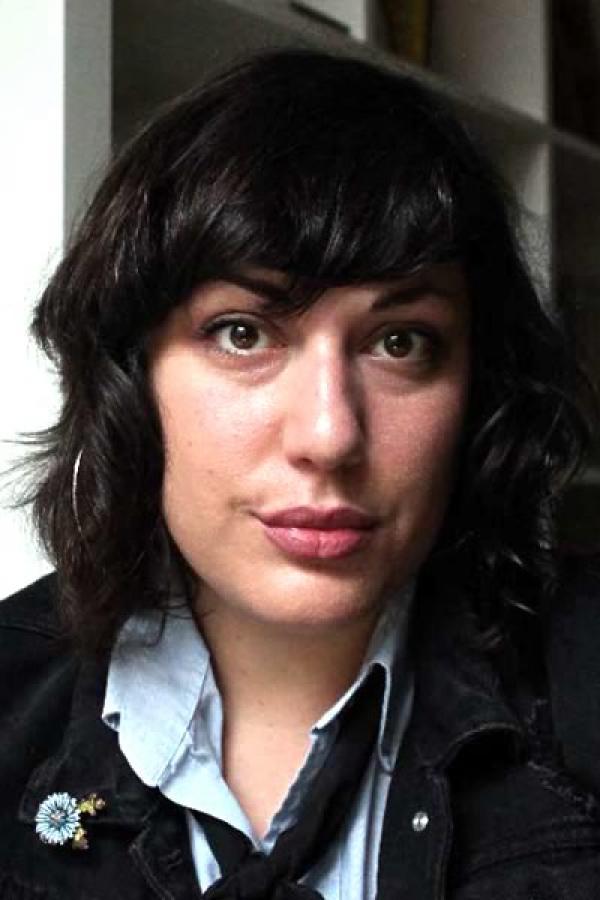Amanda Goldblatt

Photo courtesy of Amanda Goldblatt
Bio
Amanda Goldblatt is a writer, teacher, and editor, whose work has appeared or is forthcoming in Fence, NOON, the Southern Review, Hobart, and elsewhere. She has received a residency from Vermont Studio Center, and served as a Tennessee Williams Scholar at the Sewanee Writers’ Conference. A teacher of creative writing at Northeastern Illinois University and StoryStudio Chicago, she is currently at work on a novel about women, swimming, gentrification, and violence.
I was in between the library and the pool, when a DC area code showed up on my caller ID. I picked it up: it had become my habit to respond to voter surveys while walking from one place to another, and I assumed that’s what this was. But of course it wasn’t; rather, it was Mohamed Sheriff, from the NEA office, letting me know I’d received a grant. I stopped walking, then sped up, then compromised into a halting stride. As he gave me the details—warmly and patiently into my shock—I had to cross the street to escape the noise of a barking dog. By the time I was in the pool, swimming laps, I was still smiling so hard that I kept taking in water. I giggled while submerged. For me, and likely most, there is a chronic, everyday instability of being an artist: It is comprised, in part, of our labor, being evaluated, being rejected, self-doubt, and making money to live. To be a person in the world and a writer in the world can sometimes feel at cross-purposes. (When the being-a-person and the being-a-writer feels to be moving in the same direction—those are the good days.) To make art is a sublime thing but also an impossible one. But this impossibility does not stop me from making my attempts. (Other people do far more for the world, in the face of greater impossibilities, and their work awes me, pushes me to make my own work more urgent, more self-interrogating, more in service of our collective.) This grant makes my writing feel less impossible, and gives me the psychic and practical support to keep doing it. I will use the funds to pause my teaching and to work on my second novel. This is an outrageous honor.
Excerpt from "Ha! I Said Quietly"
In the pool I at last had a cap. It had arrived by mail the day prior. My hair, against my efforts, had been hollowing its follicles in repeated exposure to chlorine. The cap fit on my head like a balloon fits on a head: not well. As I pushed deep from the wall I found my head was buoyant. There was air trapped in my cap. I found I had to use my head as a sort of driver, with increased downward effort, which I imagined was splitting not only water but the great ineffable stuff of the planet: a cosmos or whatever.
There was a man who I saw once a week at the indoor pool despite going there three-to-four times each week. He was relatively fit and had tattoos, a beard, and a haircut similar to many other haircuts of men in the neighborhood. There were other people who I regularly saw at the pool, but he was the only one I was interested in racing against. I beat him every time, lapped him even when using a kickboard, relying only on my legs which were—let’s admit—my strongest parts. He of course was ignorant to our competition; and, when he emerged from the men’s locker room, back into the pool area, in order to exit, he was put together in a casual-professional outfit with contemporary detailing and materials. In other words: no matter how often I beat him, he always won.
As one winter month was defeated by the next, I learned to wear my swim cap in a way which did not catch air. As a result of this I returned to a state of sleekness, and swam even faster than before. It was easy to imagine myself as a marine animal. The chlorinated water tasted bitter in a pleasant way.
("Ha! I Said Quietly" first appeared in NOON, 2017)

